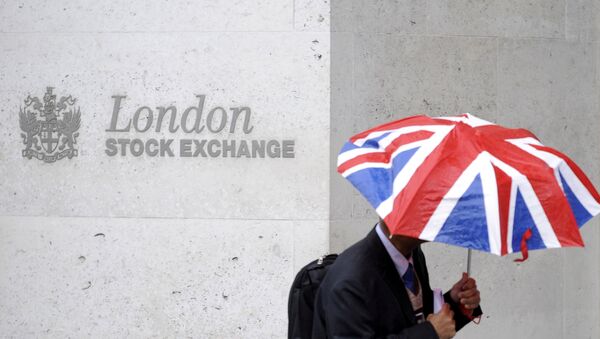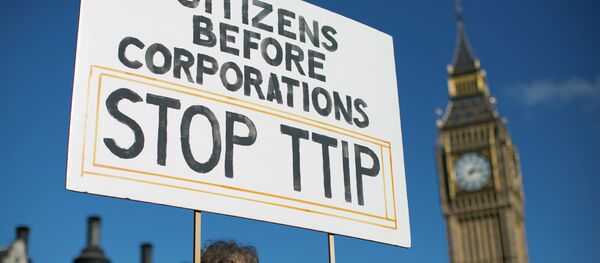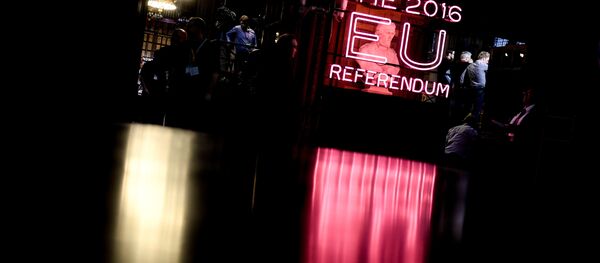Angela Merkel said that Europe shouldn't draw “quick and simple” conclusions from the vote that would further increase EU's division.
Earlier, French President Francois Hollande delivered a similar statement. On Monday, Hollande, Merkel and Italy’s PM Matteo Renzi wanted to meet and discuss the results of the Brexit referendum.
Talking to Sputnik about the Brexit, Shehab Khan said, “I don’t think that anyone in their right mind would have thought that we could potentially leave the EU.”
“Over the past couple of weeks we’ve seen a continual decline in the markets, sort of an indication that Britain is likely to suffer if Brexit were to occur, so the fact that this has happened has sort of taken everybody by surprise but I think we’re sort of seeing the ramifications of what happened in the last general election. The polls got it wrong at the last general election and it’s the same today,” Khan said.
Talking about the atmosphere in London following the polls result, Khan said that the sentiment is shared throughout the country.
He further spoke about the drastic change in the pound that Britain saw in the past 24 hours. He said that it was almost inevitable.
“We’ve seen months of speculation, we’ve seen uncertainty hit the markets for the last two months or so. The stock market’s also crashing. Britain has already gone from being the 5th largest economy to now being the 6th largest economy overnight,” Khan said.
According to Khan, London has sort of notoriously been the financial capital of the world giving access to a single market, “the largest single market on Earth, speaking the same language as America, it’s given a gateway for the Americans to have access to the single market which they won’t have anymore.”
“Speaking to people within the city, there's this fear that a lot of the jobs in finance which are currently based in London could move to Frankfurt. JP Morgan and Goldman-Sachs were adamant in the run-up to the referendum that they would potentially move. Nervousness for people within the city is sort of demonstrated by how strongly “Remain” performed within London,” Khan said.
“Cameron is obviously resigning in October, Boris Johnson and Michael Gove become the two sort of favorable candidates to take over. I think between them they’re likely to decide which of the two will stand because if they both stand they’re likely to split each other’s support.”
The journalist further spoke about how people’s opinion in the United Kingdom has not been consistent, due to which in the last general election the Labor party suffered massively because of that.
“Labor sort of moved away from its traditional voter and where we’d seen massive support for Labor up north and in Wales has been declining for a while and this is just epitomizing that. Something which I think is being ignored is the fact that Scotland did vote to remain and what this tells us is they’re going to be forced out the EU, essentially against their will, which leaves us in another situation where Sturgeon push towards and demand another independence referendum.”
He said that there is a massive disparity between what people in London want and what people in the rest of the country want and that’s why the results have been as what they are.
The results, which were revealed on Friday, saw the Out campaign win almost 52% of the votes and prompted David Cameron to announce his upcoming resignation.




